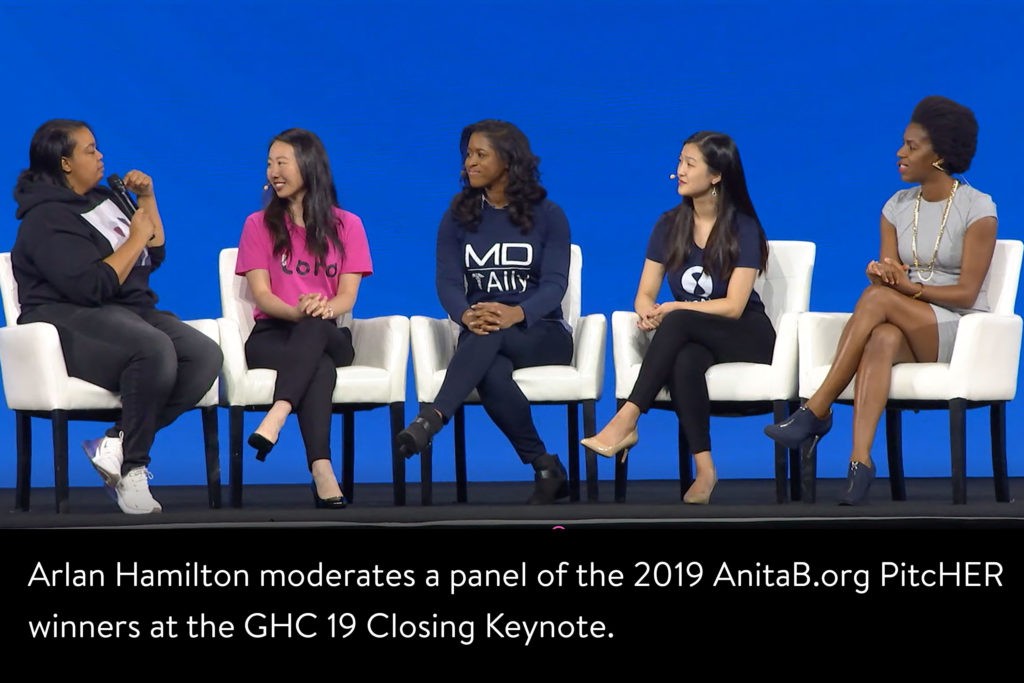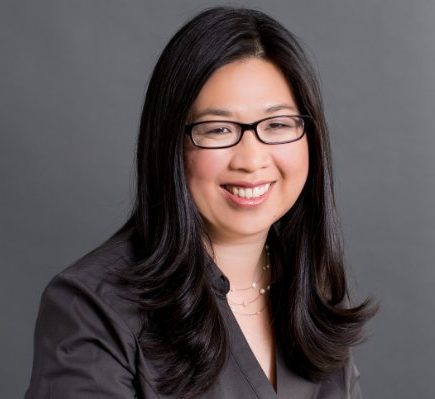Meet Holly Liu, Technology Entrepreneurship Abie Award Winner

Meet Holly Liu, Technology Entrepreneurship Abie Award Winner
Check out this video about Holly Liu, along with her speech at the GHC 18 Closing Keynote.
The Technology Entrepreneurship Abie Award recognizes a woman who is the builder of an innovative, ground-breaking, and game-changing technology venture startup (within a larger organization or not). This year’s winner is Holly Liu, Co-founder of the mobile gaming company Kabam. She will accept her award on the main stage at the 2018 Grace Hopper Celebration (GHC 18) in Houston, Texas.
Holly co-founded Kabam in 2006. Her work has literally been game changing for her company and the entire gaming industry. She led the design for Kabam’s award-winning “Kingdoms of Camelot” franchise, which grossed over $250 million in less than four years. She was also the founding mobile designer for the extension “Kingdoms of Camelot: Battle for the North,” which was the top grossing app on iOS in 2012.
Kabam would go on to partner with some of the largest Hollywood brands such as Marvel, Star Wars, The Hunger Games, The Hobbit, and countless others. Holly’s work has led to over fifty patents as well as technical and data innovations within Kabam and for the entire gaming industry.
We spoke to Holly about her career, the gaming world, and her advice to women in tech who feel isolated.
When did you first become interested in tech?
I remember my friend came back from college, and he said, “There’s this new thing called email.” He was referring to PINE. That’s when I got very interested in technology. The internet became much more accessible — now we had more than just the bulletin board system (BBS). By the end of college, the browser was invented and I was able to create HTML webpages. There was so many things that I was able to do so easily.
I graduated from college at the height of the dotcom boom, and tech consulting was on the rise. I ended up going that route, but unfortunately, the economy took a downturn. I went to a business process risk consulting group in an accounting firm. But it was pretty far from what I wanted to do, which was technology consulting.
Soon I realized, “You know what? I really love technology. So let me go back to that.” I ended up going to UC Berkeley to study information management and systems. And that’s when I really fell in love with human computing interaction (HCI), which is the intersection between people and technology. I moved to Silicon Valley, and never left.
What challenges did you face early in your career?
One of my first jobs out of grad school was working at a consulting company. I found out a male co-worker was making $20,000 more than me. I thought, “What is going on here? I have more work experience. I have a higher degree. I have the same technical major. And we started on the same day. This is utterly ridiculous.”
This co-worker was also working on training manuals from 8-6 p.m., while I was working on a coding project 12 hours a day, seven days a week. I went to the HR manager, but he didn’t do anything. Eventually, one of my good friends (who actually became one of my co-founders later) left, so I thought, “If he’s going to jump, I think I can jump too.”
I remember the manager sat down with me and asked, “Holly, why didn’t you tell me there was a problem with your pay?” I said, “I’ve told you. You didn’t hear.”
I think that is a huge problem in terms of these pay gaps. When you don’t fix these things, you lose amazing talent.
In what ways does unconscious bias affect the gaming world?
When my co-founders and I first started our company, a lot people asked me, “What is it like to be a female founder?” I said, “I don’t know what you’re talking about. I’m just a founder.” Everything is set up in a way where women are not included.
When it comes to games, I feel like there’s not enough diverse game makers out there. I think the types of games that are created are just the same things over and over. Oftentimes, when I tell women I work in video games, they will say, “I don’t like games.” I tell them, “I just don’t think that there is a game that’s made for you.”
Entertainment shapes how we think and interact. Imagine if game making was more accessible and diverse. Imagine how many more voices would be able to shape our culture.
Why do you think “Kingdoms of Camelot” was (and continues to be) so successful?
Our first game,”Kingdoms of Camelot,” was an empire strategy building game that had players collect resources like food, wood, and farming materials so that they could build kingdoms. Although the genre was nothing new, our game’s social and community elements made it innovative. Players could engage with our game in depth, something they could not do with most games at that time.
I think one of the things that is super unique about Kabam and particularly our first game is not only does it focus on innovative game play, but it allows more people to play. Traditionally, with these types of games, you would have to seek them out on a gaming website. But our game was on Facebook, so you could see your friends playing it. Our business model was also new and innovative for games at that time. Our games were free to play, and you only paid when you wanted a premium experience.
One of our co-founders also ended up going to China and building the mobile version of “Kingdoms of Camelot.” I think that really enabled a lot of accessibility to new audiences.
What has been the most rewarding aspect of creating these games?
Several memories stick out as rewarding, and all of them have to do with our game impacting others and allowing people to connect more deeply with one another. We’ve had lifetime friendships as a result of these games. However, the most rewarding moment for me was when father who was dying of cancer wrote our game team to ask us for a favor. He asked us to send a special message to his son around the time of his birthday so that his son would know his father was thinking of him.
Do you have any advice for women who may feel isolated in the tech field?
There are a lot of great online communities and resources. Normally, I prefer local events, but sometimes you’re not going to find someone within a 150-mile radius, or you can’t meet with them. That’s the beauty of online communities — it makes this big world so much smaller. You think, “Oh, I thought I was all alone. I thought I was the only person having this problem.” And then your realize that’s not true. This is why Anita Borg built Systers, right?
Right now, there’s not enough women in tech. I think what’s so powerful about AnitaB.org and the Grace Hopper Celebration is that they shine a light on this issue. Once you start getting more women in tech, then you start realizing, “This isn’t just me. This is a bigger problem. And maybe this is something we can solve together.”
Meet Holly at GHC 18 on Wednesday, September 26 at 1:45 p.m. during our Abie Award Series, or on Friday, September 28 at 12 p.m. during Speakers Corner. See our full GHC 18 schedule for more details.
Interested in pre-registering for GHC 18 sessions? Click here to learn more.
Thank you to Dell, sponsor of the 2018 Technical Entrepreneurship Abie Award.

